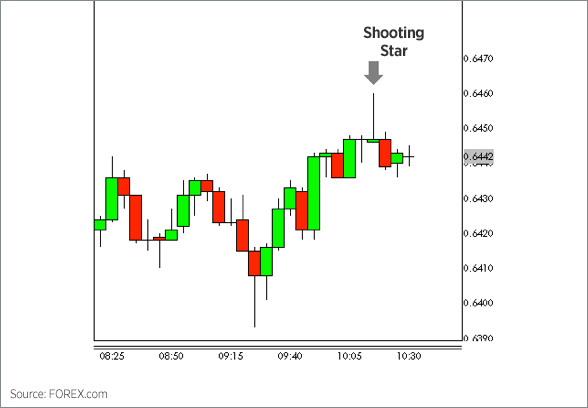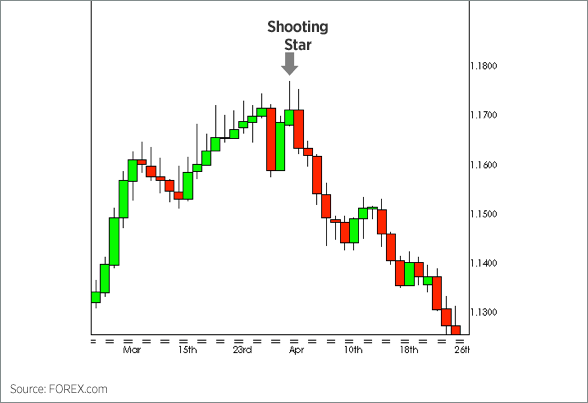What is a hammer candlestick?
- Considered a reversal formation and forms when price moves well below open, but then rallies to close near open if not higher. (inverted hammer is the mirror opposite)
- Forms a candlestick with a long lower shadow (tail), and a small body with little or no wick–looks like a hammer, or mallet. (inverted hammer is the mirror opposite)
- Depending on the previous trend, a hammer may be referred to as a hanging man or shooting start, but the same concept applies. Bullish or bearish bias depends on previous price swing, or trend.
- A hammer after an uptrend is called a hanging man.
- An inverted hammer after an uptrend is called a shooting star.
Why are hammer candlesticks important?
- May act as a leading indicator suggesting a shift in bullish/bearish momentum
- Completed hammers may help to either confirm, or negate, a potential significant high or low has occurred. –price drives higher or lower “hammering” out a top or bottom before closing back towards open
- Significance increases with length of shadow (ideally 2-3 times the size of the body) as well as timeframe
- Hammers may also help confirm, or strengthen, other reversal indicators (i.e. may occur as part of tweezer formation, or next to doji, etc.)
- A hammer “fails” when new high is achieved immediately after completion (candle), and a hammer bottom “fails” if next candle achieves new low.
- A hammer “fails” when new high is achieved immediately after completion (candle), and a hammer bottom “fails” if next candle achieves new low.
Example 1 - AUD/USD - 5min

AUD/USD - 5min - Hammer (Same as above, but zoomed in)

AUD/USD - 5min - Shooting star (Same as above, but zoomed in)

Example 2 – USD/CAD – Daily

Example 3 – USD/CAD – Daily

Example 4 – USD/JPY – 4hour
In the following 4 hour chart of USD/JPY, a hammer formed near an ascending trendline that represents a support level, suggesting of a possible continuation.

Given that the hammer did not break the trendline, we receive our confirmation to enter the trade. We buy USD/JPY at 99.60, while placing our stop-loss slightly below the ascending trendline at 99.30.

The pair rallies in line with our desired direction, advancing over 90 pips before breaking the trendline. We exit our position upon the close below ascending trendline, allowing us to attain a healthy 3:1 reward to risk ratio.
